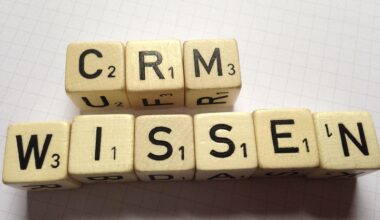Involving Your Family in Your Legacy Planning Decisions
When it comes to planning your legacy, involving your family is crucial. Open dialogues can ensure that your wishes are honored and prevent conflicts. Engaging family members in early discussions fosters transparency and unity. This approach also allows you to consider their feelings and thoughts, helping you shape a plan that reflects shared values. Research shows that families who communicate about these matters tend to have less strife when the time comes. Listening to family members can also surface important insights regarding your assets and estate. It’s vital to frame these conversations comfortably and openly, establishing a safe environment for everyone involved. You can start by sharing your vision for your legacy, which encompasses not just financial assets but emotional and aspirational aspects too. This discussion could include personal items you wish to pass down and the values you hope to instill. Additionally, bringing in professional help from estate planners can enhance these discussions, ensuring all parties understand the legal implications. You may also want to consider including documents that express your wishes clearly and precisely. This clarity mitigates potential misunderstandings down the line.
Involving family members in your legacy planning is a process that goes beyond mere legal documentation. It requires heartfelt conversations about both tangible assets and emotional memories. Engaging your heirs or beneficiaries encourages sharing stories about your possessions, enhancing their sentimental value. Each heir can share their connection to particular items, creating a richer family narrative. Consider making this dialogue a family tradition, where you gather every so often to discuss ideas, feelings, and expectations surrounding your plans. These sessions allow for clarity and understanding around responsibilities and the intent behind your legacy. You can also utilize tools like family legacy books to document stories and wishes, preserving family history in a unique way. This can further solidify family bonds as you reflect on shared experiences that resonate with your legacy. Additionally, these family gatherings can serve as an opportunity to discuss future financial literacy. Teaching your heirs about investment, savings, and financial management can empower them. Such discussions prepare them for their roles in handling your legacy and can foster financial responsibility. Moreover, continuing this dialogue over the years keeps everyone in the loop, making transitions smoother when the time arrives.
Setting Goals for the Future
Setting clear retirement goals is central to effective legacy planning. Cultivating mutual understanding among family members involves agreeing on values and priorities for your wealth and assets. You can approach this by discussing your retirement dreams first and how they intersect with family member desires. This way, you create a common ground while recognizing everyone’s perspectives. It’s important to consider how different family members may view wealth and legacy differently. For instance, some may value financial security, while others prioritize preserving family heritage. Establishing a formalized set of goals that resonate with everyone can form the foundation of your legacy plan, construing your family’s future direction effectively. Each family member should participate in this process, reinforcing a collective vision that aligns with shared objectives. This agreement may necessitate multiple meetings, requiring open dialogue that may not be easy but is invaluable. Chairing these discussions with empathy lays the groundwork for understanding. Furthermore, documenting these conversations could help establish accountability within the family. Putting pen to paper reinforces commitments, adds clarity, and keeps everyone focused on shared goals. This practice holds families together as they navigate the complexities of legacy planning.
Besides the emotional aspects, financial literacy plays a pivotal role in legacy planning. Empowering family members with knowledge ensures they don’t face difficulties managing the legacy you leave behind. You might consider hosting workshops or informative sessions to educate your family about financial principles. These educational initiatives can significantly bridge gaps in knowledge and understanding, making future transitions easier and less stressful. Incorporating discussions about budgeting, investing, and asset management prepares your family for the responsibilities they may inherit. Additionally, sharing resources, books, or even reputable websites can provide further learning opportunities. Highlight the importance of professional guidance too, encouraging them to consult with financial advisors or estate planners should they have questions. By providing tools for financial understanding, you ensure that your family does not just receive an inheritance but understands its value and stewardship. This fosters responsible management of the assets left behind, preventing disillusionment and financial woes down the line. All these steps promote a sense of legacy preservation that transcends generations, reinforcing the values of financial responsibility. Educated heirs are often more equipped to honor the intentions behind your legacy, thus ensuring its successful continuation.
Documenting Family Values and Wishes
Documenting wishes is an essential part of legacy planning, which should not be overlooked. It’s crucial to ensure that not only your financial objectives are expressed but also your core values, beliefs, and dreams. Crafting a legacy letter can be a beautiful way to encapsulate these sentiments; this should include your hopes for your family’s future and wisdom gained over the years. A clear document can serve as guidance for your heirs during challenging times and assure them of your love and aspirations for their lives. This acknowledgment can create emotional resonance and reflect your life’s journey, imparting valuable insights that help guide their decisions. This letter should accompany your official estate documents, creating a holistic legacy that addresses both assets and emotional connections. It can also incorporate family traditions, recipes, and anecdotes that bring your family’s unique history to life. When family members read these letters, they will feel an intimate connection to what you stood for, instilling values that can be passed to future generations. This act allows clarity during tough moments, reinforcing family ties that may span across generations while ensuring your legacy is honored as planned.
Involving your family in legacy planning isn’t just about delegation; it’s about collaboration. Think of deliberative workshops where you can engage in constructive conversations regarding your legacy. Encourage everyone to express their opinions, thoughts, and concerns, which can allow for deeper understanding. Make use of collaborative tools, such as shared documents or digital platforms where everyone can contribute ideas or documents regarding the legacy plan. This collaborative effort ensures each family member’s voice is heard. Furthermore, establishing periodic family meetings keeps the conversation going. This consistent communication allows for adjustments in the plan when circumstances change. These meetings can also help navigate any conflicts that may arise, preserving family harmony. Through this process, members will feel valued which can foster a sense of belonging and responsibility regarding the family legacy. It solidifies the bond within the family as they work collaboratively towards mutual goals. Consistently reaffirming the importance of family dreams and shared objectives enhances engaged participation. By making legacy planning a collective venture, you set the stage for future generations to nurture and respect the foundation you built, enriching your family’s culture. This sense of unity can transcend beyond your lifetime.
Ensuring Ongoing Communication
Maintaining consistency in communication throughout your legacy planning journey is essential. As family dynamics and perspectives may evolve, keeping everyone informed and involved is crucial. Schedule regular check-ins to discuss the plan’s status and to address any questions or concerns family members might have. Flexibility is vital; as you age, your views on your legacy may shift, requiring a reassessment of priorities and wishes. Ensure that your family remains actively engaged by involving them in these evaluations. Keeping the dialogue open about alterations aids in building trust and encourages ongoing participation in the process. Incorporating technology can also facilitate communication, especially in larger or distant families. Virtual meetings or group chats offer accessible platforms for everyone to stay connected, irrespective of geographic locations. Updating your family on the critical aspects of your legacy may prompt them to share meaningful insights and considerations. Furthermore, documenting agreed-upon changes can help create transparency, reinforcing a participatory culture. These conversations can lead to deeper family engagements and collective decisions that honor your legacy. Ensuring that all family members feel they have an ongoing voice can strengthen their connection to your vision for the future.
In conclusion, involving your family in legacy planning creates a more meaningful transition of your assets and values. It lays down a foundation where family members feel involved and informed. Through open dialogue, regular communication, and education, family bonds strengthen and reinforce shared understanding. Encouraging shared discussions fosters unity around your legacy vision. Your family learns to appreciate the intent behind your decisions, ensuring that your values are carried forward. Legacy planning can often seem daunting, but it becomes manageable when approached together as a family unit. It opens opportunities for learning and growth while also weaving a narrative that can enrich future generations. Creating a legacy is not solely about wealth; it encapsulates your dreams, values, and morals, which should ideally live on. Remember that collaborative planning nurtures accountability and admiration among family members. Ultimately, this journey can be rewarding, where love and respect define the legacy you leave behind. Discussing your plans with your family creates a deeper understanding and appreciation of both assets and aspirations. Following these strategies can strengthen family connections, ensuring your legacy resonates for years to come, guiding generations with love and light.





